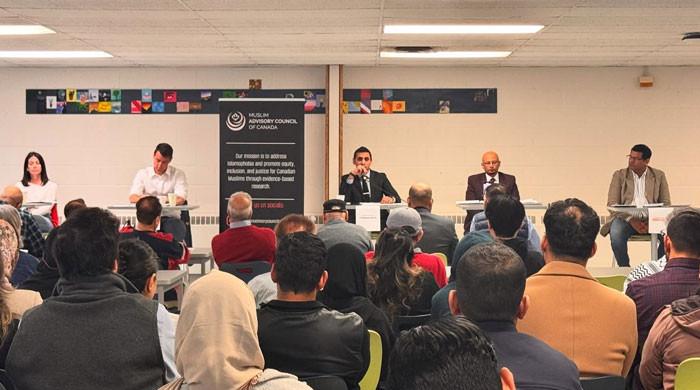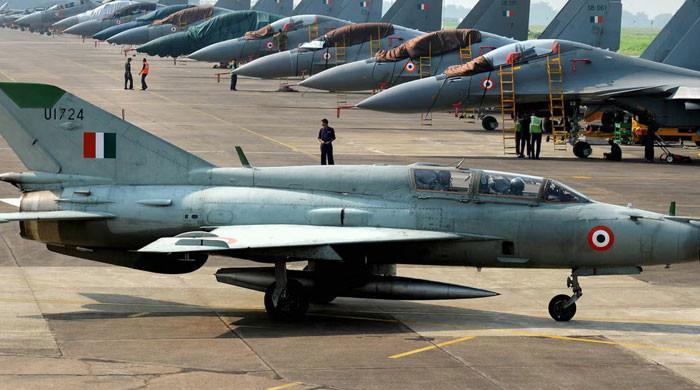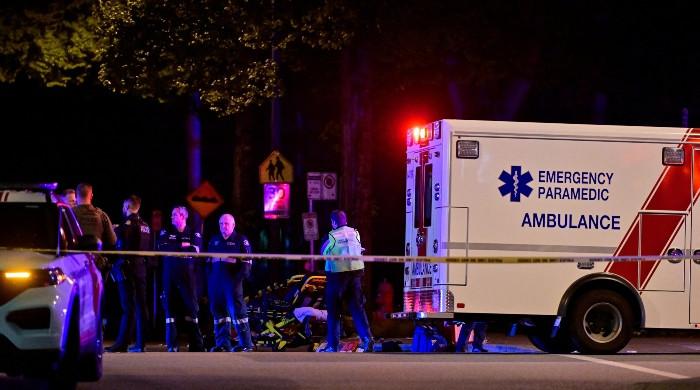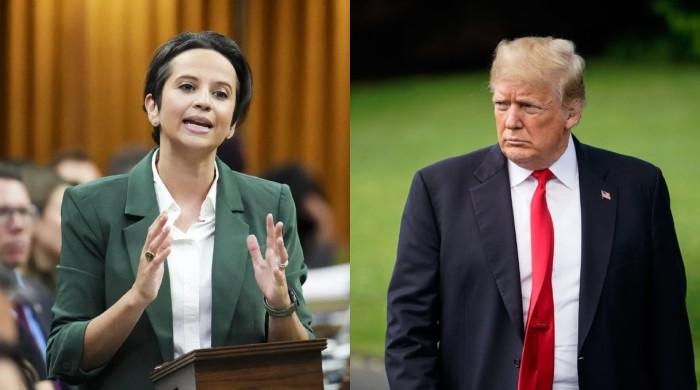India seems to be preparing ground for possible strike on Pakistan: report
Report suggests India actively seeking global backing not to calm situation, but to build case for military action
April 28, 2025
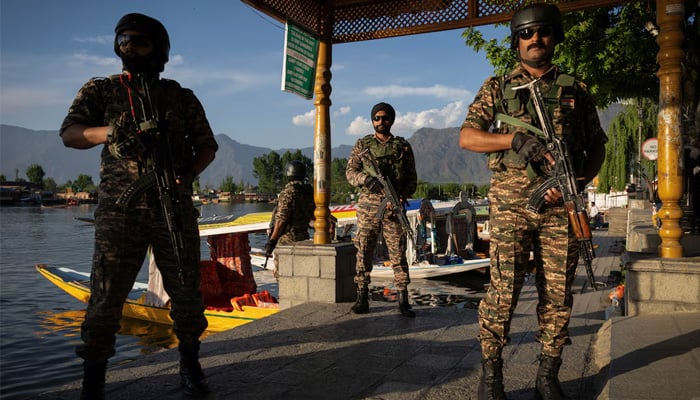
- Prospect of volatile confrontation between Pakistan, India looms large.
- Indian PM Modi urgently reaches out to over a dozen world leaders.
- Modi pledges severe punishment and razing of terror safe havens.
As tensions with Pakistan rise following a deadly gun attack in the Indian Illegally Occupied Jammu and Kashmir (IIOJK), India is actively seeking global backing — not to calm the situation, but to strengthen its justification for potential military action.
Despite limited concrete evidence tying Pakistan directly to the attack, the prospect of a volatile confrontation between the two nuclear-armed neighbours is becoming increasingly concerning, the New York Times reported.
The NYT report states that Indian Prime Minister Narendra Modi has urgently reached out to over a dozen world leaders in a flurry of diplomatic calls in the wake of last week’s brutal attack. Meanwhile, officials report that envoys from 100 foreign missions have been swiftly summoned to the Ministry of External Affairs for high-level briefings.
But the effort is largely not about rallying help to de-escalate India’s dangerous face-off with Pakistan, which it accuses of having “linkages” to the attack. Instead, according to four diplomatic officials aware of the discussions, New Delhi appears to be building a case for military action against its neighbor and archenemy. Without naming Pakistan, Mr Modi in a speech on Thursday promised severe punishment and the razing of terror safe havens.
In the occupied region, Indian forces have also begun a sweeping clampdown, arresting hundreds, as they continue their hunt for the perpetrators.
Earlier, India declared its intention to disrupt the flow of water to Pakistan, whose irrigation system depends largely on upstream rivers. It also ordered the immediate departure of some staff members at Pakistan’s diplomatic mission as well as of Pakistani citizens visiting India.
Islamabad, for its part, has said it will suspend participation in bilateral treaties, including one that affects the “line of control” demarcating the frontier between the two countries in the disputed areas where a cease-fire had held for several years.
Anti-Muslim sentiment in India is also intensifying, with Kashmiri students studying in other Indian cities in particular facing widespread harassment and many of them feeling compelled to return home.
Five days after the terrorist assault, in which gunmen killed 26 civilians, India has not officially identified any group as having carried out the massacre, and it has publicly presented little evidence to support its claim that Pakistan was behind it. The Pakistani government has denied involvement.
In the briefings to diplomats at the foreign ministry, Indian officials have described Pakistan’s past patterns of support for "terrorist" groups targeting India, diplomatic officials said. The Indian officials have said their investigation is continuing, and made brief references to technical intelligence tying the perpetrators of last week’s attack to Pakistan, including facial recognition data.
The lack of strong evidence offered so far, analysts and diplomats said, pointed to one of two possibilities: that India needs more time to gather information about the terrorist attack before striking Pakistan, or that — in a time of particular chaos on the world stage — it feels little need to justify to anyone the actions it plans to take.
A military confrontation between India and Pakistan, both armed with nuclear weapons, runs the risk of rapid escalation that could be difficult to contain. But India is largely unrestrained by any global pressure to limit its response, and it has become quicker to flex its muscles in recent years as its diplomatic and economic power has grown.
The governments of Iran and Saudi Arabia have spoken to the two sides, and Iran’s foreign minister has publicly offered to mediate. The United Nations and the European Union have called for restraint and dialogue. But major powers, including the United States, are distracted by other crises, and analysts say India is interpreting the expressions of support by many countries for its pursuit of justice as a green light for any measures it takes.
Trump administration officials have voiced strong backing of India’s fight against terrorism. President Trump has said he is friendly with both India and Pakistan, while noting that they have long been at odds.
But it is unclear how involved Washington will get in the current clash. Three months into his term, Trump has still not named an ambassador to India, a sign of where South Asia ranks in his list of priorities.
Even if the United States or other powers did try to insert themselves into the conflict, they may have limited influence. India and Pakistan have fought several wars over Kashmir.
The initial response from Washington has been similar to how the first Trump administration dealt with the last major flare-up over Kashmir, in 2019, said Daniel Markey, a senior fellow at the Johns Hopkins University School of Advanced International Studies.
That confrontation was spurred by an attack that killed dozens of Indian security forces. The affiliation of the attackers — a militant group called Jaish-e-Muhammad — was more clear.
At that time, the Trump White House signaled support for India. The administration increased its diplomatic pressure for restraint only after India had gotten a punch in on Pakistan, with a cross-border airstrike.
The strike’s damage was disputed. Afterward, as Pakistan moved to retaliate, it got into a dogfight and shot down an Indian jet. The pilot was taken prisoner.
To make up for that fumbled response, all signs this time indicate a desire by India to do “something spectacular,” Markey said. Pakistan has vowed to match and exceed any strike by India.
“The tit-for-tat cycle could move rapidly, and the Indians and Pakistanis have inflated assessments of their own ability to manage escalation,” Markey said.
Unlike with the 2019 terrorist attack, the claims of responsibility for last week’s slaughter have been murky, with information even on the exact number of attackers less than concrete.
The lack of clarity may help explain why India has pointed largely to Pakistan’s "past patterns", the report mentioned.
But that approach, before India has laid out its evidence even in private diplomatic discussions, has raised some eyebrows considering the gravity of the escalation. One diplomat privately wondered: Do you want to go to war with a nuclear-armed neighbour based just on past patterns?




